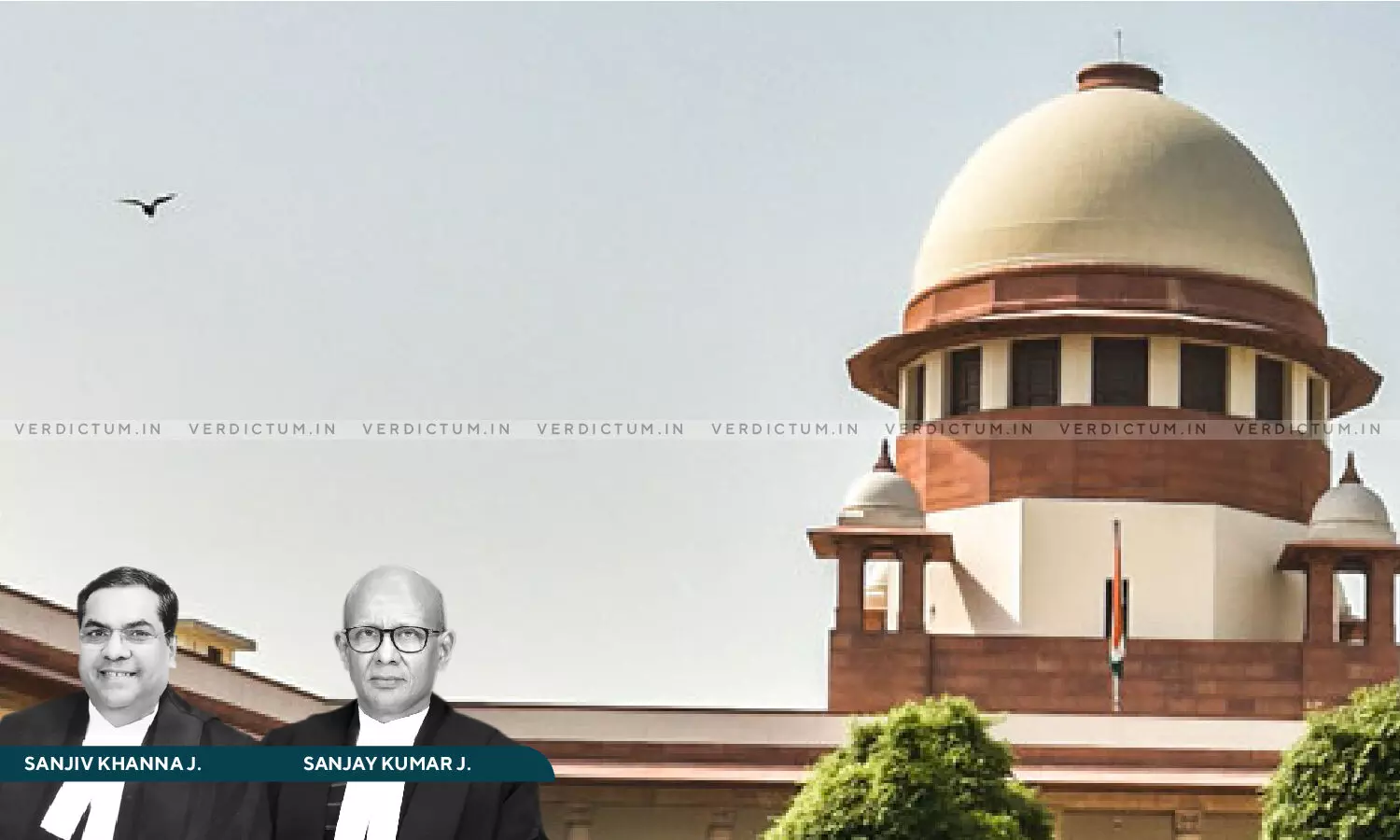
While Considering Rectification Application U/S 59 Companies Act, NCLT Has To Examine Factual Issues To Ascertain The Substance Of The Issue: SC
 |
|The Supreme Court observed that NCLT exercising its jurisdiction under Section 59 of the Companies Act, 2013 (2013 Act) has to examine the factual issues to ascertain the substance of the issue.
The Bench set aside judgments from both the National Company Law Tribunal (NCLT) and the National Company Law Appellate Tribunal (NCLAT) regarding the alleged fraudulent transfer of shares and subsequent mismanagement at M/s Lexus Technologies Pvt. Ltd. (Company).
A Bench of Justice Sanjiv Khanna and Justice Sanjay Kumar observed, “The National Company Law Tribunal exercising jurisdiction under Section 59 of the Act of 2013 has to examine the factual issues to ascertain the substance of the issue before it after removing the cloak of the form of the application. The expression ‘rectification’, as already pointed out, connotes something that ought to have been done but, by error, was not done, or what ought not to have been done but was done, requiring correction. The phrase ‘sufficient cause’ in Section 59 of the Act of 2013 is to be tested in relation to the statutory mandate thereof, i.e., anything done or omitted to be done in contravention of the Act of 2013 or the Rules framed thereunder.”
Senior Advocate Dhruv Mehta represented the appellants, while Senior Advocate Ritin Rai appeared for the respondents.
The appellants had approached the NCLT seeking rectification of the Register of Members of the Company under Sections 59 and 88 of the 2013 Act. They also sought action under Sections 447 and 448 of the 2013 Act for fraud, alleging that their names were removed from the shareholders’ register.
The NCLT initially granted interim relief, restraining the Company and its directors from disposing of or creating encumbrances over its assets. However, the final order of the NCLT dismissed the petition without considering the merits or documentary proof provided by the appellants, including share transfer forms and certificates. The NCLAT upheld the dismissal.
The Supreme Court stated that if an application for rectification includes projected claims which do not come within the purview of rectification and the Company Court feels that the civil court/regulatory body would be the more appropriate forum, then jurisdiction under Section 155 of the Act of 1965 cannot be exercised.
“In the present case, proper verification of the assertions made by the parties was a sine qua non. The Acting President of the NCLT, by failing to carry out the said exercise, failed to discharge the mandate of law. Exercise of power under Section 59 of the Act of 2013 is to be undertaken in right earnest by examining the material, evidence, and the facts on record. This has not been done. Rather, a narrow view was taken,” the Court observed.
The Court reiterated that when Constitutional Courts are called upon to interpret provisions affecting the exercise of powers and jurisdiction by regulatory bodies, the Court must ensure that transactions falling within the “province of the regulators are necessarily subjected to their scrutiny and regulation.”
Consequently, the Court remanded the matter to the NCLT Amaravati Bench for fresh consideration.
Accordingly, the Supreme Court allowed the petition.
Cause Title: Chalasani Udaya Shankar & Ors. v. M/s. Lexus Technologies Pvt. Ltd. & Ors. (Neutral Citation: 2024 INSC 671)
Appearance:
Appellants: Senior Advocate Dhruv Mehta; Advocates PBA Srinivasan, V. Aravind, Keith Varghese, Srishti Bansal, Sumit Swami and Aanchal Pundir; AOR Amit K. Nain
Respondents: ASG Aishwarya Bhati; Senior Advocate Ritin Rai; Advocates Byrapaneni Suyodhan, Kumar Shashank, Ruchi Kohli, Navanjay Mahapatra, Shiv Mangal Sharma, Prasenjeet Mahapatra and BLN Shivani; AOR Tatini Basu and Amrish Kumar